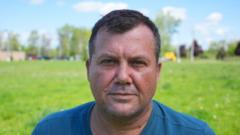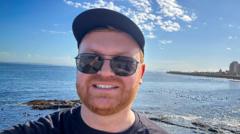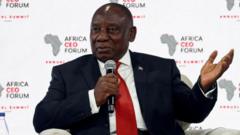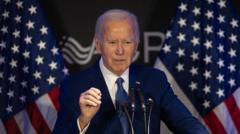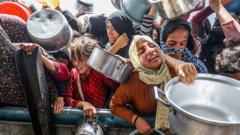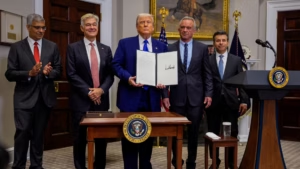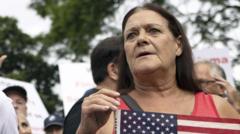**This article investigates the complexities surrounding claims of genocide against South Africa's Afrikaners, a community with a contentious history and uncertain future.**
### The Controversy of Alleged Genocide: Exploring Trump's Claims Regarding South African Afrikaners

### The Controversy of Alleged Genocide: Exploring Trump's Claims Regarding South African Afrikaners
**In a world of differing narratives, President Trump's refugee status offer to Afrikaners has ignited a heated debate.**
In recent developments, US President Donald Trump has drawn significant attention by granting refugee status to members of South Africa’s Afrikaner community, citing ongoing genocide threats. The offer has already resulted in nearly 60 Afrikaners arriving in the United States after being granted asylum, a move that involved coordination with the South African government to process applications in-country.
Afrikaners, descended mainly from European settlers in the 17th century, have historically been tied to various forms of racial segregation and land dispossession throughout South Africa's tumultuous past. Their identity, forged through a mix of Dutch, German, and French lineage, has recently made them subjects of intense scrutiny, particularly surrounding the issue of violence against white farmers.
Despite Trump's allegations of a "genocide," there is a glaring absence of support from any South African political parties—including those representing Afrikaners—for such claims. The rhetoric around the supposed genocide has proliferated mainly among right-wing factions and has been largely dismissed in court as "not real." A recent South African court case that addressed the concept of genocide concerning white farmers reaffirmed that violence risks skewing the reality of the population's shared struggles.
Asserting the validity of his stance, Trump reiterated his concerns over the mistreatment of white farmers in South Africa, arguing they faced brutal attacks and land confiscations. In stark contrast, South African President Cyril Ramaphosa firmly rejected these claims, insisting they are factually incorrect and indicative of a refusal to adapt to the socio-political changes occurring in the country.
Adding to the complexity is billionaire entrepreneur Elon Musk’s statement about the alleged "racist ownership laws" in South Africa, fueled by the country’s history of apartheid—a system that systematically marginalized non-white populations. Such remarks echo sentiments found among those advocating for the protection of Afrikaners' rights, yet they also risk reigniting historical tensions within the diverse South African landscape.
The discussion is further complicated by vocal political figures like Julius Malema, whose controversial song "Shoot the Boer," has incited debates about freedom of expression and incitement to violence in post-apartheid South Africa. The legal backing for such expressions raises concerns about societal divisions, despite the overarching narrative of communal pursuits for justice and equality.
Interestingly, while a surge of interest from Afrikaners towards migrating to the United States has been noted—allegedly up to 70,000 expressing intent—this does not suggest a universal consensus among the entire Afrikaner population. Many leaders within the community, including representatives of the right-wing Freedom Front Plus party, maintain a commitment to South Africa, emphasizing a desire to build a sustainable future in their homeland.
In conclusion, the discourse surrounding the supposed genocide of Afrikaners encompasses historical grievances and present-day political dramatics, revealing a multi-layered tableau in which aspirations, fears, and legacies collide. As the reality on the ground continues to evolve, understanding these complex narratives will be essential in addressing the broader implications for South Africa's multicultural society.

